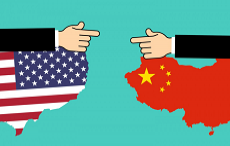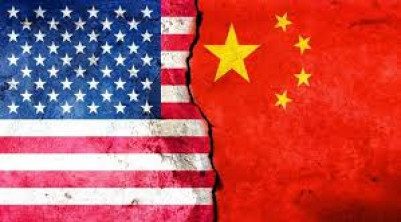People > Uday Khanapurkar
Uday Khanapurkar was a Research Assistant at the Institute of Chinese Studies, Delhi. He has completed his B.Sc in Economics (Hons.) from the Symbiosis School of Economics situated in Pune. While his academic endeavour has been in the field of economics, he aims to segue into the fields of International Relations and establish a career in academia therein. His areas of interest are geoeconomics, the nexus between economic interdependence and conflict and great power competition in the maritime domain. He authored an undergraduate dissertation entitled Peace in a Globalised Asia: 'The Relation Between China’s Conflictual Behaviour and Levels of Intra-Industry Trade, 2002-2010'. He is also the author of a book entitled 'The Pursuit of Prosperity: Exploring China’s Economic Dependence on India as a Deterrent to Conflict', written for the Chennai Centre for China Studies (C3S) and published by KW Publishers, New Delhi.

This essay gauges the degree of disaffection that has surfaced across the developed world towards China’s various methods of technology acquisition and provides an overview of the emerging technology denial strategies.

On 10 May, 2019, the Trump administration raised tariffs on USD 200 billion worth of imports from China.

China’s impending economic slowdown promises to send shockwaves through the world’s economies and is compelling them to assess exposure and explore mitigation strategies.

India’s trade deficit with China, an element of the bilateral relationship that inspires substantial animosity in New Delhi, is stirring up a controversy yet again.

Ultimately, an Indian boycott of Chinese imports is neither feasible, nor effective, nor efficient.

After more bad economic news, China’s commitment to deleveraging comes under pressure.

China’s economy is in for a rough patch. The response from its leaders will have profound consequences.

Beware an overreliance on manufacturing data when forecasting China’s economic health.

The Canadian arrest of Huawei CFO Meng Wanzhou came at the request of the U.S., but Canada is likely to be the biggest loser.

This paper performs an evaluation of the impact of these contestations on the main components of China’s economic growth across the short and long run.
Geoeconomics, the nexus between economic interdependence and conflict and great power competition in the maritime domain.
Research Assistant, Institute of Chinese Studies, Delhi.
Research Intern, Institute of Chinese Studies, Delhi.
B.Sc Economics (Hons.), Symbiosis School of Economics, Pune
© 2019 ICS All rights reserved.
Powered by Matrix Nodes